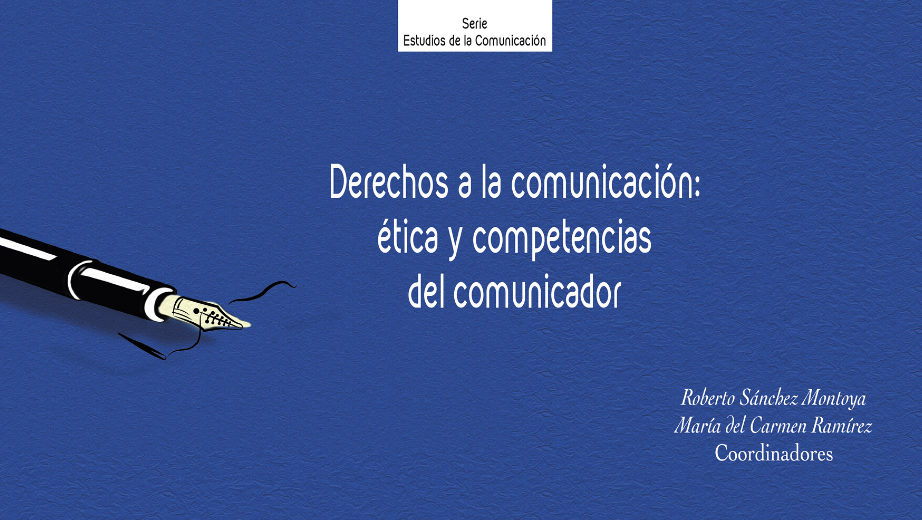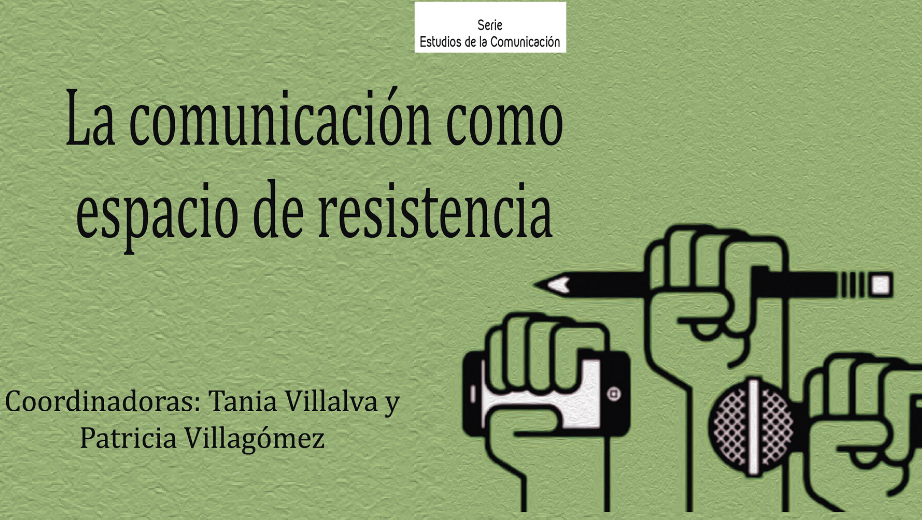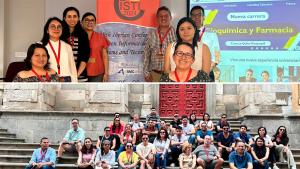Presentation of two books: "Derechos a la comunicación" and "La comunicación como espacio de resistencia"
Presentation of two books: "Derechos a la comunicación" and "La comunicación como espacio de resistencia"

The communication undergraduate program presented two books: "Derechos a la comunicación: ética y competencias del comunicador", coordinated by Roberto Sanchez Montoya and Maria del Carmen Ramirez; and "La Comunicación como espacio de resistencia", coordinated by Tania Villalva and Patricia Villagomez. The books are the result of the work carried out by the communication, development and politics research group and the communication research group.
The first book compares the profile of professionals and communication skills in practice, then makes an analysis of the ethical subjectivity of community communication and finally, the reflection on the challenges of the digital age.
Sánchez highlighted the participation of women. "Most of the articles are written by graduate students and I am pleased to know that there are 13 female authors which reduces the inequality of women in research." Ramírez spoke about the role of the university regarding the training of the communicator. "Our communicative action must be with ethics, with values, decisions and openness, I believe that the classroom is the privileged place from where we generate a mediation through knowledge, practices, and professional competences according to the Salesian model".
The comments were made by Fr. Rómulo Sanmartín, professor of the Philosophy undergraduate program and Fr. Marcelo Farfán, general coordinator of the Salesian Institutions of Higher Education (IUS).
Fr. Marcelo stated that "We must overcome any mercantile, ideological, relativistic, individualistic vision within the contents of the subjects, we need to build curricular content towards the practice of interculturality and to do so we need a change of mindset, attitudes, languages", he said.
The second book "La comunicación como espacio de resistencia", brings together research in different contexts in which communication plays a fundamental role in terms of the right to resistance and the exercise of democratic participation. It is divided into three sections: social agents, community media and interculturality.
Villagómez, UPS professor and coordinator of this book, pointed out the concerns in the book: "The reproduction of hegemonic logic of the private media that control common sense and public opinion, turning communication into a commodity" . Tania Villalva, professor and also coordinator of the book, defined communication as trans-disciplinary and built from the community. "Communication that intends to be anti-systemic, anti-hegemonic from Western thought," she said.
The comments on the book were made by Adalid Contreras, professor and researcher from La Paz, Bolivia and Eduardo Guerrero Guevara, community communicator. "When a book begins by asking questions, it begins well because it listens before writing. It is academic, it is about popular communication, topics that many books elude since they focus on functionalist and structuralist theories," said Contreras.
For Guerrero, the book brings together a series of research and proposals based on theoretical discussion from experiences regarding their discrepancies with social, political, economic and communicational models.
Narcisa Medranda, director of the Communication undergraduate program, said that the books include the tasks and obligations of communicators in the digital age. At the end of the event UPS president Fr. Javier Herrán congratulated the authors and thanked officials, professors, students and the general public for attending.






Follow us
Follow us